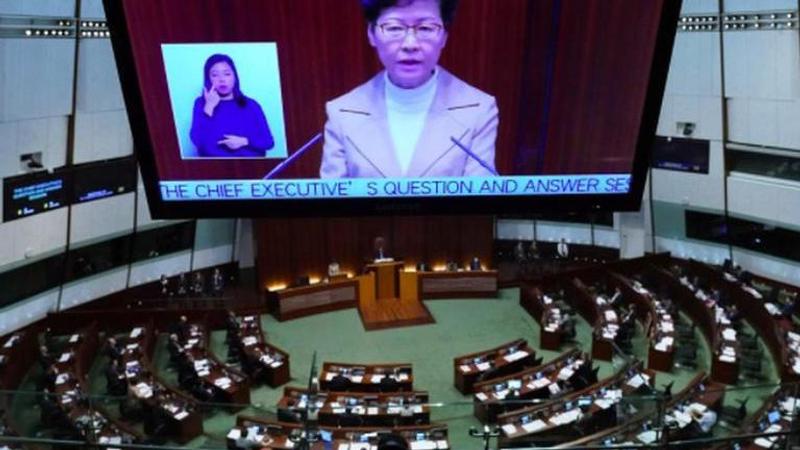Published 19:34 IST, August 12th 2020
Hong Kong suspends extradition treaty with France and Germany
Earlier, after China imposed the controversial national security law in Hong Kong, the France and Germany decided not to ratify an extradition agreement.

On August 12, the Hong Kong Special Administrative Region (HKSAR) government announced in a statement that it was suspending the extradition agreement with Germany and France. The decision came in accordance with the central government’s orders. Germany and France “politicized juridical cooperation” after Germany scrapped Surrender of Fugitive Offenders (SFO) agreement and France halted ratifying extradition treaty, the Hong Kong government said.
Earlier, after China imposed the controversial national security law in Hong Kong, the French government decided not to ratify an extradition agreement. French Foreign Ministry's spokesperson said in a written statement “in light of the latest developments, France won't proceed with the ratification” of the 2017 extradition agreement with Hong Kong “as it stands.” Meanwhile, German Foreign Minister Heiko Maas, on August 2 issued a statement, saying, Germany was suspending extradition agreement due to its postponement of elections. Furthermore, China responded, saying, that it expresses ‘strong indignation’ and ‘firm opposition’ against the European nations’ unthoughtful decision in an official statement.
Citing Germany’s and France’s suspension of the treaty as “unilateral”, the HKSAR said in the statement, “Such moves are open interference in China's internal affairs and a violation of international law and basic norms governing international relations.” Further, it strongly condemned the move, calling it the end of the era of “juridical cooperation”. Last month, Australia, Canada, New Zealand, the United Kingdom, and the United States suspended the extradition treaty with Hong Kong over China’s reluctance in “listening to the international community and reversing its course”, as Canada’s Foreign Minister Francois-Philippe Champagne said in a conference.
China needs to 're-evaluate' actions
While Canada asked China to “re-evaluate” its actions, UK Foreign Secretary Dominic Raab accused the Beijing government of a serious breach of the Sino-British Joint Declaration under which the U.K. returned control of Hong Kong to China in 1997. However, China’s ambassador to Britain, Liu Xiaoming, described the move as “gross interference” in Chinese affairs. In a separate statement, China had warned nations of “consequences”.
(With Agency Inputs)
(Image Courtesy: AP)
Updated 19:34 IST, August 12th 2020




